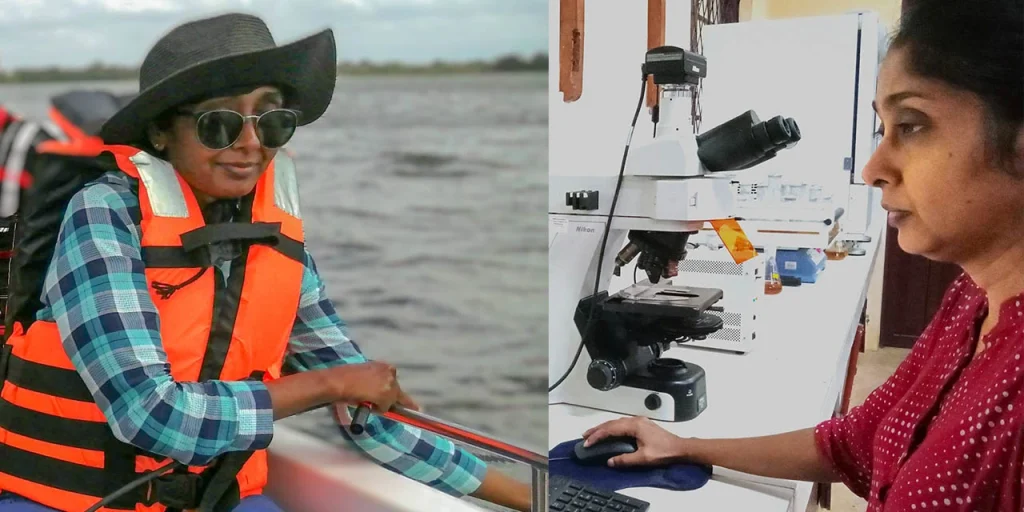Gaining funding (and trust) for a freshwater algal bloom alert system in Sri Lanka

As a plant virologist in Sri Lanka, Prof Shirani Widana Gamage is developing solutions to critical water pollution issues. But that’s just part of the challenge.
For female scientists in some developing countries, access to opportunities can present a significant challenge. Dr Shirani Widana Gamage, Senior Lecturer in Botany at the University of Ruhuna, Sri Lanka, describes the great fortune of pursuing her passion in a country where there is scientific equality:
“Opportunities for science education in Sri Lanka is very equal between men and women. If anything, in recent years more women have wanted to continue to postgraduate studies and tend to get more of the scientific job opportunities.“
That by no means makes the path for prospective scientists in Sri Lanka simple, however. Getting a space at one of the few public universities is hugely competitive. Just one in five who take the entrance exams are estimated to get a university place due to the limited number of spaces.
For Shirani, gaining a place at the University of Ruhuna meant more than access to studies — it opened opportunities for her career:
“I completed a 4-year degree in Botany, (graduated) with first-class honors and managed to secure work at the university,” she says. “I’m now working in the Department of Botany in the same university.”
This continued association with her place of study has not stopped Shirani from experiencing science in different geographies. As a condition of her first role with the university, it was mandated she do a master’s degree and PhD:
She ended up doing two master’s degrees. For the first, in Sri Lanka, she focused on microbiology and molecular biology. After that, she received a scholarship from the Netherlands Fellowship Programme, which allowed her to study plant sciences at Wageningen University.
Having returned to Sri Lanka for a few years for her PhD, Shirani once again had the desire to have an international experience. She successfully applied for a Faculty for the Future Fellowship from the Schlumberger Foundation, which aims to support women in STEM. This opened the opportunity to study plant virology at the University of Queensland, Australia.
Shirani describes her time at the University of Queensland as having a particularly positive impact:
“In my laboratory, there were students, researchers and supervisors from a broad mix of countries. The working environment was very friendly. It was very good to share experiences with people from different parts of the world.“
Read the full article on Elsevier Connect: “Gaining funding (and trust) for a freshwater algal bloom alert system in Sri Lanka“, Milly Sell, 9 July 2024.

















